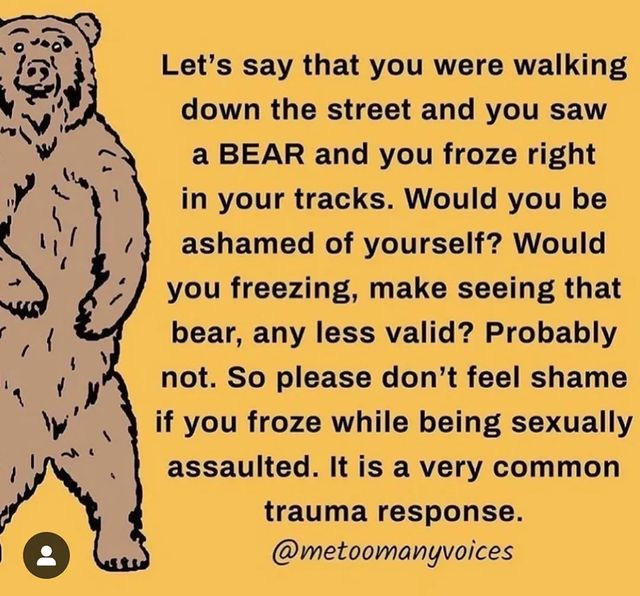
This past weekend was a very busy one around our household. So busy that both of us wound up completely wiped out by Sunday, and I managed to get sick. Not Covid sick like a couple of months ago, but sick enough to require some sleepy-time medication and 10ish hours of sleep per night for a few days.
Which makes for an odd life. One where I only spent a couple of hours each day not working or sleeping, if that.
On a related note, last week was also World Mental Health Day, and the theme for this year was ‘It is Time to Prioritize Mental Health in the Workplace.’
Thank you for reading the Child Abuse and Mental Health Survivors newsletter. Each week, I share new blog posts and other resources that aim to help survivors of childhood abuse and those who are struggling with mental health issues feel less alone as we discuss the issues surrounding our issues.
For more information about me and why this newsletter exists, visit the website - Child Abuse Survivor.
The reason I say those two things are related is something you’ll see linked below, which I wrote before I got sick. Spending a couple of days being too tired and not feeling up to doing anything but eat and sleep after work gave me a perfect example of it, though. That feeling of having spent so much emotional energy at work, that there’s nothing left for the remainder of my life.
The reality is, our mental health benefits greatly from being connected to our friends, family, and communities. Working in such stressful and emotionally laboring conditions prevents us from doing those things. There’s no energy left.
So, I must ask. What are you doing for your employees to make sure they have enough to remain connected and involved in those areas of their lives? If you aren’t doing anything, don’t be surprised when they leave.
Especially if you ask them to do the heavy emotional lifting of dealing with jerky customers and managers without offering any solutions.
New from the Blogs
Sharing - The Lesser-Known Effects of Childhood Sexual Abuse,
The last thing I want you to consider as you read the article below is that some of these effects are contradictory. For example, sexual abuse can cause hyper-arousal and sex addiction while also causing survivors not to want to be touched. Two different survivors, despite suffering from similar abuse, may have opposite reactions to that abuse, while others may have some combination of both of the contradictory effects. (For example, that same person who is hyper-aroused may also cringe at certain kinds of sexual touch.)
The point is that this list of possible effects is helpful. It will help you understand what is happening with your partner. It's not a replacement for open conversation about the impact that an individual is dealing with.
Mental Health Television Network
I won't make any claims about the network's quality or content at this time. Like I said, I just found out it existed yesterday. But, if you're looking for content on mental health, this could be a place to look for live programming or videos related to mental health topics.
Linked - Here’s how to celebrate World Mental Health Day 2024
I'm sure some CEOs out there read that and think we're supposed to be drained and used up. That just shows how dedicated we are to our work. That ignores the fact that work is only part of our lives. They ignore the damage that does to society when we have adults who are uninvolved with their kids' lives, disconnected from their community, uninformed about what is happening in the world, and lacking many meaningful friendships because work requires them to have nothing left to give to those endeavors.
That's why having a workplace that accounts for those impacts on employees' lives is so important.
Shared from Elsewhere
Speaking of supporting your partner - How to Support a Loved One with Mental Health Challenges: A Guide for Partners.
While we are supporting partners, let’s not forget this: World Mental Health Day: Experts offer advice for supporting children’s mental health.
On the same note:
How can we identify trauma and trauma-based behaviors? - Some interesting thoughts from a therapist on how she recognizes trauma in other’s behavior.
This might be worth reading - Book Review - Complex PTSD: From Surviving to Thriving by Pete Walker.
This can be a struggle to accept, but it is true. - Accepting that Healing Takes Time.
Making a difference:
Paramore's Hayley Williams Talks PTSD & Mental Health In Heartfelt Message
Teen organizes ‘March For Teen Life’ to raise mental health awareness
Ladd talks 1616 mental health initiative, foundation in NHL.com Q&A
Indiana Lt. Gov. Suzanne Crouch on a mission to support mental health
From the Archives
Sharing – Trauma Healing Requires A Certain Amount Of Privilege
She lists out things like having insurance, having financial security, having a partner and friends from who she doesn’t have to hide her therapy sessions, etc.
As we just talked about yesterday, the reason less than half of all people dealing with mental health issues actually get any treatment at all is because they don’t have all of these things.
But a touch is never simple to a sexual abuse survivor, is it?
Financial Stress and Mental Health – Why Younger Employees Leave.
There’s no guarantee the work they do now will provide for them into the next decade, year, or maybe even month. They’ve seen far too much churn in every industry to trust that they have long-term job security.
Thanks for reading. If you find this newsletter informative and helpful, please spread the word. That’s the best way to thank me for my weekly effort.



